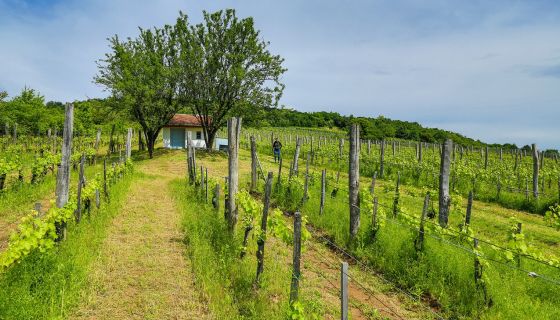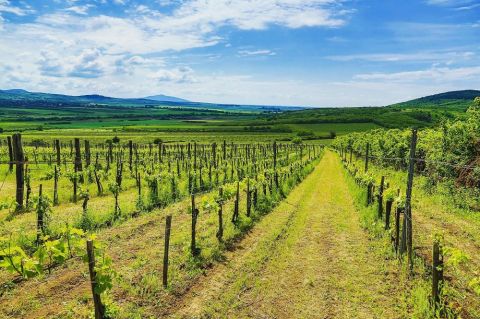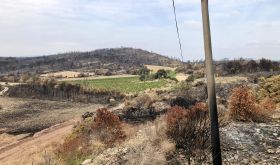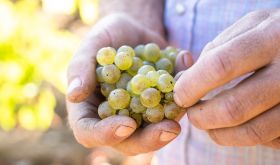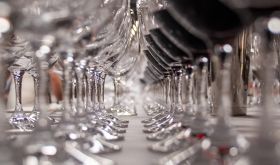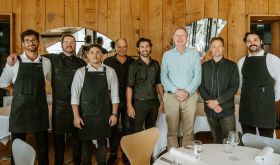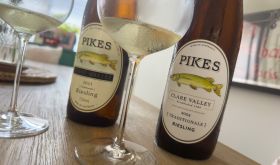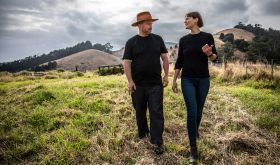1945: Hetény Vineyard (Tállya, Tokaj region, HU), Szóló Winery
There’s something more than touching in the fact that 77 years ago, as the dust settled after a brutal world war, someone was thinking about creating new life. Fast forward almost eight decades, in the Hetény vineyard in Tállya, and Tímea and Tamás Éless are now cultivating a heritage that was born towards the end of a bloody war. The impact of World War II virtually destroyed the traditions and the values of this wine region for a few decades, but plants survived amidst the ruins and now the couple are making wines that can reinvent those forgotten local values. The Eless family bought that plantation in Hetény from an old man in Tállya, who told the heartwarming story of rebirth.
Caught up in the crossfire of the German and Soviet armies
“While the German soldiers resided in Hernádkércs, only six kilometres away, the rougher Soviet soldiers occupied the houses in Tállya,” Tímea Éless explains. She was born and raised in Tállya, and her grandparents and relatives in the neighbourhood experienced and suffered from both sides of the occupying forces. During a big battle not too far away in Hortobágy (from the 6-28th of October 1944), it was the main time of planting season in the wine region. While the Russian army was marching around Tállya, one of the original owners in the Hetény vineyard was ploughing away, battling the persistent noise, to establish new vines. They were probably planted low on stakes, as all the old plantations were. Later another owner bought the small Furmint parcel (0.3 ha) in 1988 and it was already cordon-trained by that time (as it became more and more popular thanks to the spread of tractors during the 70s). This is how the current owners (Szóló Winery) took it over and later learnt the incredible story of this special parcel from the late Ferenc Kapanószki, in Tállya, who vigorously ploughed that vineyard in the October of 1944.
Hetény today
The vineyards of Tállya, around Hetény, are considered together as “beyond the water” (vízentúl) because there is a narrow stream dividing this area from the village. Tímea and her husband Tamás bought the remaining five rows of this old parcel around 2016 and they noticed that those old Furmint vines produce much lower yields, with the classic small berries in small bunches, compared to younger plants. It should be noted that the Furmint variety has dozens (if not hundreds) of different clones and diverse morphological versions within the Tokaj region: most of which were selected for mass production (for the Soviet market) with poor quality during the 60s and 70s, which is how they became more and more widespread, pushing aside traditional Furmint variants. While these remaining, rare old vines preserved the original genetic patterns of this ancient local variety in silence, they were deepening their roots in the soil for decades and waiting for someone to discover the “old-new” potential.
The upshot is that these tiny and tight clusters provide a different, more concentrated substance in the wine. Due to this fact and the loess soil mixed with the white rhyolite tuff, “the wine of this terroir always shows a really unique, pronounced acidity,” says Tímea. Some grapes overripen, while sometimes a bit of noble rot appears as well, but Hetény is much better for TokajDry wines (as was carried out in 2017 under the name ‘1945’, then as ‘Thetis’ in 2018, while in 2019 and in the challenging 2020, with much more botrytis, they skipped the vineyard selected wine from Hetény).
The couple, who own the biodynamic winery, also bought and renovated a small presshouse in a picturesque spot, making for a nice vineyard-tour and tasting (facing Tokaj Hill). They frequently organize this special experience for their guests (with a van) in order to share the touching story of those old vines.
The photos are provided by Gergely Ripka.

